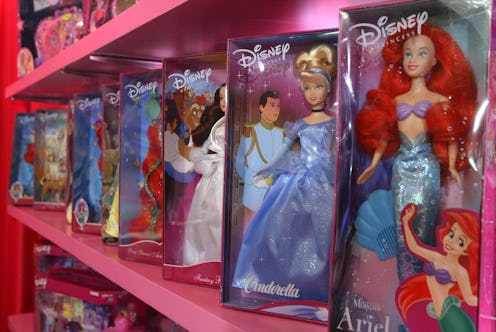Princess Culture May Actually Produce Empowered Girlbosses, Study Says
You may adjust your parenting accordingly

Being a parent in this day and age means having to make a lot of tough decisions when it comes to raising your children. Homeschool or public? Dairy milk or almond? Princess industrial complex or an algorithmic rabbit hole of progressively disturbing YouTube videos that no human was ever meant to see?
For many parents, the answer to that last one probably seems obvious: Give little Harper the iPad and call it a day. But what if I, via a psychological study, told you that princess culture will not turn your daughter into a self-loathing bitch with body image issues and outdated gender-based beliefs, but actually an empowered bitch with progressive views about femininity and masculinity?
Brigham Young University professor and developmental psychologist Sarah Coyne came to that conclusion in a recently published study. Coyne first interviewed 307 preschool-aged children in 2012 and 2013 and found that high engagement with Disney princesses was associated with more stereotypical attitudes towards gender roles; the results of that research were published in 2016. But now, Coyne followed up with the same participants five years later and found that, over a longer period of time, princess lovers seemed to have higher self-esteem and subscribe less to gender norms. Eat your heart out, anti-royals!
“Princess culture gives women key storylines where they’re the protagonist. They’re following their dreams, helping those around them, and becoming individuals who aren’t prescribed a role because of their gender,” said Coyne in a statement published by BYU, citing newer Disney princesses like Moana (who is technically the daughter of a chief) and Elsa (who is technically a queen who abdicated the throne but kept her status as queer icon).
Of course, there are caveats to this study, as one professor pointed out to the Wall Street Journal. Namely, that the sample size is small, 87 percent white, and all from Utah and Oregon, which explains the 87 percent white thing.
But still, Disney seems pleased with the PR. Walt Disney Animation Studios chief creative officer Jennifer Lee told the Journal in a statement: “At Disney Animation, we approach our stories with the goal of creating dimensional, relatable and engaging characters, whether they are female, male, dragon or snowperson.”
Next stop: live-action women!